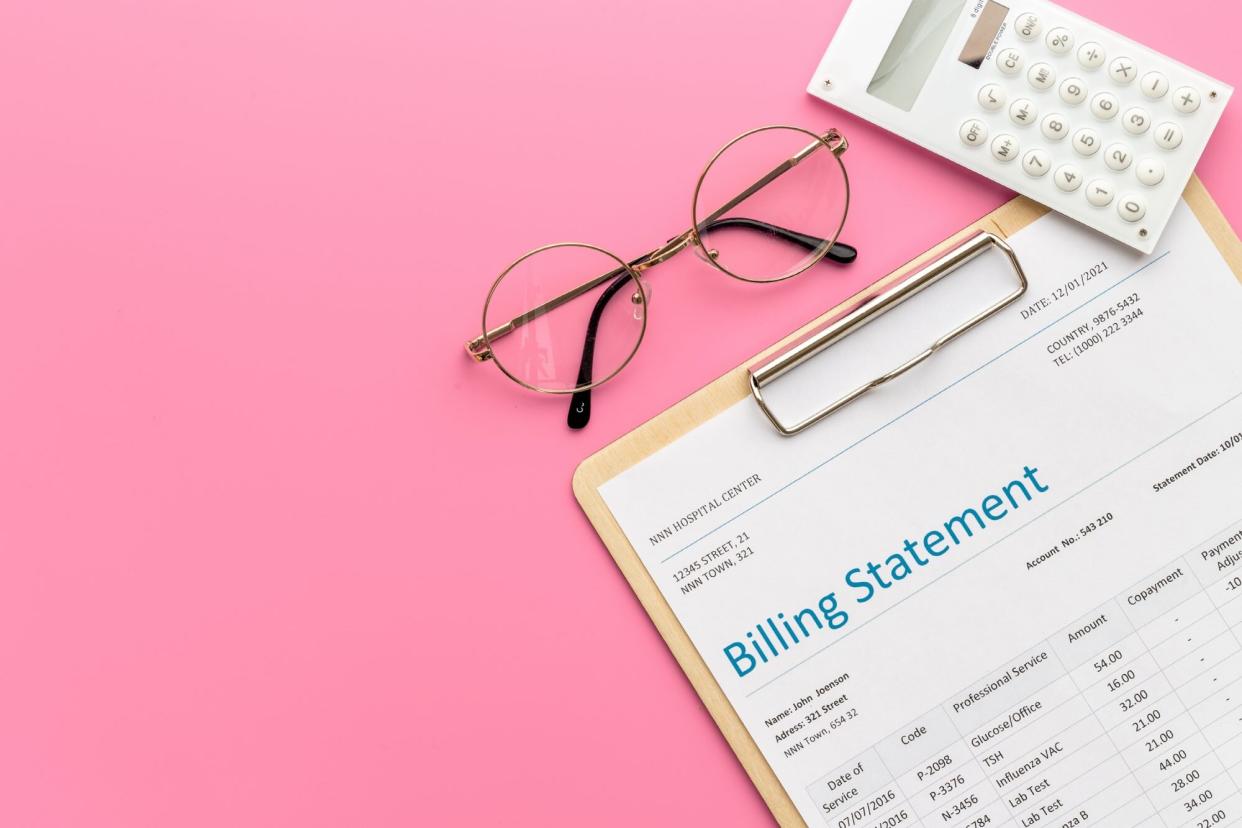Don't Pay a Medical Bill Until You Do These 5 Things

To state the obvious: medical bills can be extremely expensive. Costly tests, medications, and procedures can really add up and cause some sticker shock when you finally receive a medical bill. Before you shell out anything, take the extra time to look closely at any medical charges to make sure you're being billed properly, ask if there's any negotiating room, and understand exactly what you owe and why. In other words, don't always take that balance due at face value. Here are five smart steps to take before paying that pricey medical bill.
RELATED: 7 Ways to Save on Health Care Costs
Verify your information.
First check that the bill was in fact run through your insurance and that your insurance information is correct, says Adria Gross, a medical billing advocate and the founder of MedWise Insurance Advocacy. Occasionally, a billing company will mail a bill without running it through insurance. Or there might just be an error—even leaving one number off your insurance ID can make it seem like your policy is invalid.
RELATED: How to Fix a Credit Card Error Before It Impacts Your Credit Report Permanently
Ask for an itemized list.
Providers should send a line-item breakdown that shows how they came up with the total. If your bill doesn't have one, ask for it. Then make sure everything on the bill is a test, medication, or service you received during your appointment or hospital stay, says Teresa Brown, senior director of the hospital division at Medliminal, a company that specializes in medical cost containment. "Check units and quantities," she says. "I was talking to somebody whose husband had a CT scan, and they billed her twice. We've seen a toothbrush billed for $1,000. So look for extra zeros and other numbers."
Research billing codes.
Every medical procedure has a corresponding billing code, which your doctor's office enters to tell insurers what was done and help them process the claim, says Caitlin Donovan, senior director of public relations at the National Patient Advocate Foundation. If you were denied coverage for a procedure, suss out whether the wrong code was used: Type the code from your bill or insurance claim into a code search tool, like the one on findacode.com. If you notice a potential error, ask your doctor's office about it. They may be able to resubmit your claim with corrected coding. "I also recommend asking your insurer how a procedure needs to be coded to get covered," says Donovan.
RELATED: 8 Savvy Ways to Save on Pricey Prescription Drug Costs
Don't be afraid to negotiate.
Even if you've done your homework, triple-checked your bill for accuracy, and appealed, you may still end up owing more than you can afford. If that's the case, go to healthcarebluebook.com or fairhealthconsumer.org to get a sense of what a reasonable charge for the service is; that will give you a negotiating starting point, says Donovan. People want to get paid, so if they see you're making an effort to tackle the bill, providers should be willing to set up a payment plan and work within your financial constraints. They may even offer a lower lump-sum cost.
Take care of it quickly.
Don't let that bill drift to the bottom of your to-do list. Call the billing office (or your insurance company, if it handles payment for you) as soon as you can if you think you've found an error. If you don't contact the billing office or pay the bill, the provider can send it to a collection agency.
How to prevent problems:
Know your network.
One of the most common ways to rack up charges is by going to an out-of-network provider, since your insurance will usually only cover a smaller portion of the cost, if anything. For any visit or procedure, check that the provider or lab is in-network. In case of emergency, know which hospital in your area is in-network (but be aware that some doctors working there may still not be on your plan). Discuss your policy with your benefits department or call your provider to get clarity.
Have a cost conversation.
Ask your doctor about cost-effective alternatives, suggests Donovan. If doctors know that budget is a concern, they may be able to opt for a more affordable treatment or a generic drug.
Be your own advocate.
Take notes at your appointments (and the appointments of anyone you care for) and ask if you can record the visit. Note what was done and any treatment directions so you have a reference if some-thing strange appears on a bill.
RELATED: How to Manage a Mountain of Medical Bills When a Health Crisis Occurs

